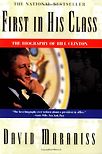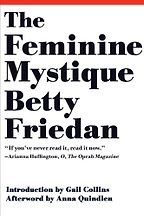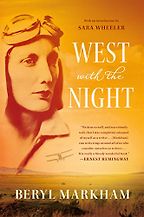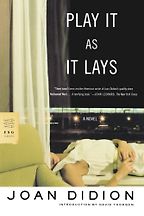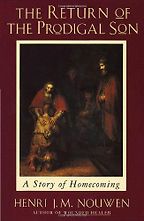How long have you known Hillary Clinton and what have you learned from speaking with her over the years?
I first met Hillary in 1991 when her husband was starting to run for President. I’ve studied her up-close and from afar since then.
She is quite a different person one-on-one than she is in a crowd or as a candidate. One might suppose that Bill Clinton is a warm engaging fellow, because that is how he appears in public. While Hillary, in public, seems more plodding and less colorful. In fact, she is the warmer of the two. She is also incredibly intelligent and lawyerly. I remember, when I first met her, she used a legal term in a casual context, which I had to look up.
Diving into your books. First, “A triumph of political biography,” according to the Chicago Sun-Times. It’s a book about the first Clinton to become president, Bill. You wrote it. Tell us about First in His Class.
It was an effort to write about the first member of my generation—the post-war baby boom generation—to make it to the White House. It’s a biography of Bill Clinton, but you can’t write about him without writing about Hillary. From the time they first met at Yale Law School, in 1971, they saw that together they could get places that they could not get to apart. She has been an essential part of his rise, and vice versa.
“There is always that tension between family and career.”
When people talk about the Clintons they sometimes suggest that there is something inherently corrupt about the compromises they’ve made as a couple and the way they’ve helped each other along the way. As someone who knows them and has studied them, what is your perspective?
For all politicians, just as for all human beings, there’s a tension between ambition and idealism. The Clintons are a kind of exaggeration of that tension. Hillary has built up an encrusted defensiveness over her more than forty years with Bill Clinton, largely in defense of him and their rise together and, in great part, because of his own personal vulnerabilities. Over the course of that period, in defense of him and in defense of their partnership, she’s been less than transparent out of the belief that her ends justified her means.
He is universally considered to be the more gifted politician. What do you think he has taught her?
He is a gifted politician and he also is a great campaign strategist, but none of his skills seem to be transferable to her. She doesn’t have his fluidity or his ability to make everyone who is listening think that he’s talking to them. On the contrary, he has said many things that have not helped her. It’s a curious thing. In part, her political career is possible because he became president. And yet, since then, I don’t know how much of a help he has been.
Moving on to a title familiar to all, Betty Friedan’s The Feminist Mystique. Tell us about it and its resonance for our topic.
Hillary Clinton is of a generation that was at the heart of the feminist movement. Books by Betty Friedan, Simone de Beauvoir and others had a profound influence on Hillary and millions of other women from her generation. In Hillary’s case, many people who knew her thought she would be the one to lead the movement. Yet in 1974, when she was in her twenties, she decided to move to Arkansas and attach her career to Bill Clinton’s.
There is always that tension between family and career. Hillary’s life represents that. Betty Friedan’s book explains it.
In 1994, Friedan wrote an op-ed for the Los Angeles Times about what she saw as an organized effort to pillory Hillary during the first Clinton administration, an effort that Hillary once called “a vast rightwing conspiracy.” How right or wrong were Friedan and Clinton? And how much do the efforts against her have to do with sexism?
It’s always more complicated than that, but it’s certainly a factor in the hostility to Hillary. The chant “Lock Her Up” has such an evocation of the way women have been demonized throughout history that there’s an undeniable aspect to the pillorying of Hillary as a strong woman. But that is on a larger scale and you also have to weigh up her behavior and characteristics, as you would with any politician or human being.
“I have no reason to be suspicious or cynical about the role of faith in her life.”
Hillary Clinton has cited West With The Night by Beryl Markham as one of her favorite books. Please tell us about it.
When she was a kid, Hillary wanted to be an astronaut. She’s always been attracted to flying and space, she grew up near O’Hare Airport. She’s always been attracted to strong women and she’s always been attracted to daring people, even though she is not the most daring person herself. Her mother named her in honor of Sir Edmund Hillary, the great mountain climber. Her attraction to adventurers is evident throughout her life.
To what extent does Hillary Clinton identify with a feminist icon like Markham? Is breaking the glass ceiling something that has driven her?
More than she likes to show in public. Much like Barack Obama couldn’t show too much of his identification as an African-American – because as president, you are president of everyone – Hillary has been cautious. But internally, and increasingly outwardly, she is identifying as a pioneer. And I think that will wash over her and over much of the country if she is elected.
Next up is a 1970 Joan Didion novel, Play It As It Lays. Tell us about it.
When Hillary was the young wife of the Governor of Arkansas, she would read books together and talk about them with her best friend, Diane Blair, a professor at the University of Arkansas. She and Diane read that book, loved it, and talked a lot about it.
I read it long ago. The book has a bleak aspect to it, in terms of marital relations.
This novel seems populated by corrupted, psychologically-crippled characters. She has talked about how she attributed some of her husband’s failings to his psychologically-tortured family history. Is that part of why this novel resonates?
I think so. She definitely understood that her husband suffered from some addictions, you might say. Again, those are things that are very difficult to talk about in public, when you’re a politician. That is another part of the internal side of Hillary.
Lastly, at a televised town hall during the 2016 primary season, Hillary Clinton cited this book as a spiritual touchstone. Please tell us about the Return of the Prodigal Son by a Dutch theologian, Henry Nouwen.
One time, when I interviewed Hillary, she kept talking about this book and the discipline of gratitude. She brought it up because she was trying to emphasize the role that her faith, as a Methodist, has played in her ability to keep going. She cited that book as one which she would turn to again and again, having a profound influence on her ability to keep going no matter what.
“Neither of those books impressed me in the least. They were typical political books that don’t really add much to the equation.”
How much does faith shape her worldview? Is it her tent pole, as she suggests?
She has a very complex character. It’s hard to say that one thing is the tent pole. But I have no reason to be suspicious or cynical about the role of faith in her life.
Hillary Clinton has also called this book “a call to forgiveness.” What role do you feel forgiveness play in her character and her career?
Well, she’s had to forgive her husband a million times. I don’t know whether she’ll be able to forgive all of her opponents for all that she’s been put through. People are complicated. You can have forgiveness in you and a little anger in you at the same time. But I don’t doubt that striving for gratitude and forgiveness is one of the things that keeps her going.
You have not cited Living History or Hard Choices, Hillary Rodham Clinton’s two autobiographies. Does your omission say anything about the reliability of Clinton’s self-representations?
Neither of those books impressed me in the least. They were typical political books that don’t really add much to the equation.
Last question: please predict how a Hillary presidency would differ from her husband’s two terms.
In one sense there will be a little déjà vu, because from the very beginning, maybe even more intensely than with Bill, her Republican opposition is going to be targeting her to try to delegitimize her presidency.
She is much better organized than her husband was. Maybe we can expect less chaos in her White House staff.
The political climate has changed. Her husband was a survivor and he was surviving in a climate that was divisive but more conservative. She’ll be somewhat to the left of her husband, if she can be.
In her years as a Senator, she was able to find compromises and get along with Republicans in the Senate. I think that her ability to work across the aisle might surprise people, if work across the aisle is allowed to happen, which is increasingly dubious.
Interview by Eve Gerber
November 7, 2016. Updated: June 25, 2023
Five Books aims to keep its book recommendations and interviews up to date. If you are the interviewee and would like to update your choice of books (or even just what you say about them) please email us at [email protected]
Five Books interviews are expensive to produce. If you've enjoyed this interview, please support us by donating a small amount.

